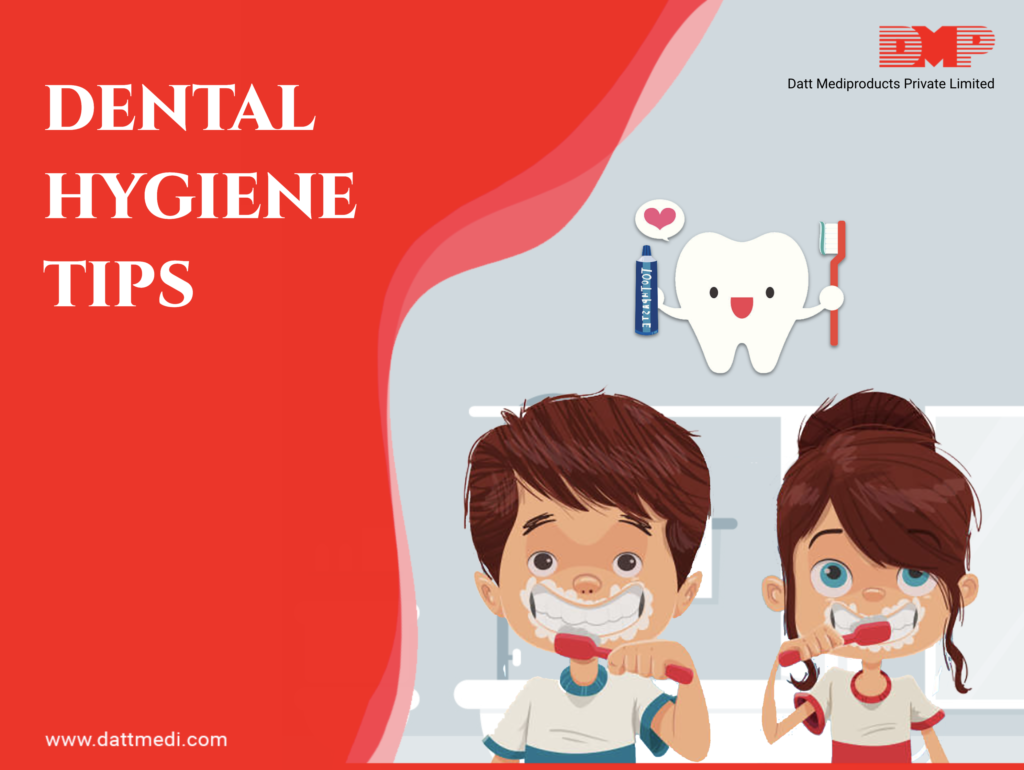
Establishing Healthy Dental Hygiene Habits
Maintaining optimal dental hygiene is vital for a bright and healthy smile. Follow these effective dental hygiene tips to ensure your oral health is in top condition.
Daily Brushing and Flossing Routine:
The foundation of good dental hygiene starts with a consistent brushing and flossing routine. Dentists recommend brushing your teeth at least twice a day using fluoride toothpaste and a soft-bristled toothbrush. Additionally, make flossing a daily habit to remove plaque and debris from between your teeth, promoting overall oral health.
Choosing the Right Oral Care Products:
Selecting the appropriate oral care products significantly contributes to your dental hygiene. Opt for fluoride toothpaste to strengthen enamel and prevent tooth decay. Consider using a toothbrush with soft bristles to avoid damaging your gums and enamel. Mouthwashes with antibacterial properties can complement your routine, promoting fresh breath and reducing bacteria.
Regular Dental Check-ups and Cleanings:
Scheduling regular dental check-ups and cleanings is essential for maintaining optimal oral health. Professional cleanings remove hardened plaque (tartar) that regular brushing and flossing may miss. Dentists can also identify potential issues early, preventing them from developing into more serious problems.
Balanced Diet for Healthy Teeth:
A balanced diet plays a crucial role in dental hygiene. Limiting sugary snacks and acidic beverages helps prevent tooth decay. Incorporate foods rich in calcium, such as dairy products and leafy greens, to promote strong teeth and bones. Drinking plenty of water also aids in saliva production, which naturally cleanses the mouth and helps neutralize acids.
Avoiding Harmful Habits:
Certain habits can adversely affect your oral health. Avoid tobacco products, as smoking and chewing tobacco can lead to gum disease, tooth decay, and oral cancer. Additionally, moderate alcohol consumption contributes to overall health, including maintaining good oral well-being.
Proper Care for Dental Appliances:
If you use dental appliances such as braces, retainers, or dentures, proper care is crucial. Follow your dentist’s instructions for cleaning and maintenance to ensure their effectiveness in addressing specific dental issues. This contributes not only to oral hygiene but also to the longevity of the appliances.
Teaching Children Good Oral Hygiene Practices:
Instilling good oral hygiene habits in children sets the stage for a lifetime of healthy smiles. Teach them the importance of regular brushing and flossing, limit sugary snacks, and schedule early dental check-ups to establish a solid foundation for their oral health.
Addressing Dental Anxiety:
For those experiencing dental anxiety, open communication with your dentist is key. Discuss any fears or concerns to create a more comfortable dental experience. Dentists are trained to provide support and alleviate anxiety through various approaches, ensuring you receive necessary care without unnecessary stress.
Environmental Factors and Oral Health:
Consider environmental factors that may impact oral health, such as fluoride levels in drinking water. Some areas may have lower natural fluoride levels, prompting the need for fluoride supplements or alternative preventive measures.
Consistent Commitment to Dental Hygiene:
In conclusion, effective dental hygiene requires a consistent commitment to daily practices and regular dental visits. By incorporating these tips into your routine, you can achieve and maintain a bright, healthy smile. For more insights on Dental Hygiene Tips, visit myownperfectsite.com to explore a wealth of resources.